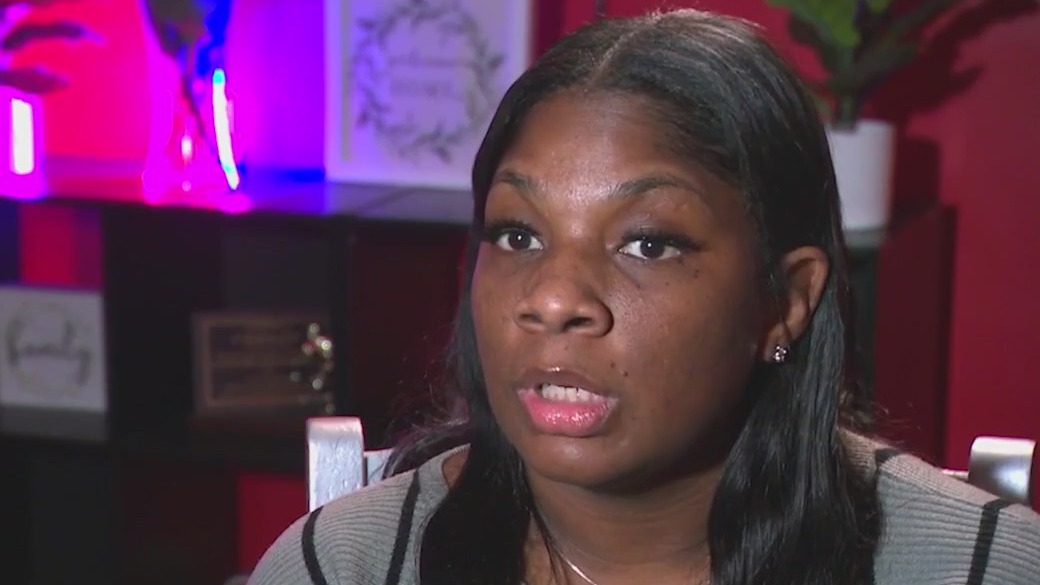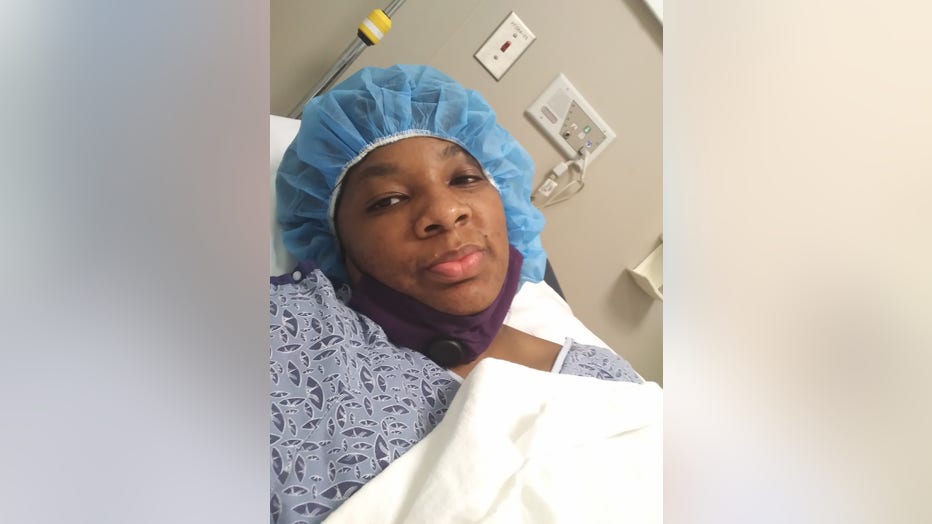Atlanta single mother shares her search for answers about her severe abdominal pain

Living with Crohn's disease: A mother's story
Kita Hardy learned to talk about her symptoms because they were affecting every part of her life. It took years to figure out what was causing her pain and to find a doctor who would partner with her to find a way forward.
ATLANTA - Raising four children as a single mom with a life-altering illness, Kita Hardy is comfortable talking openly about her gut health, and what more than a decade of living with Crohn's disease has done to her body and her life.
"I was very symptomatic," Hardy says. "I had blood in my stool, excessive fatigue. I was unable to eat, abdominal pains, headaches. But, I think the thing that triggered it most was the blood in my stool."
Digestive issues plague mother of four
The 39-year-old patient care assistant and medical technician says she was working at Grady Memorial Hospital in 2014, when she started to really struggle with gastrointestinal pain.

Kita Hardy, 39, was diagnosed with Crohn's disease in 2016 after years of painful symptoms (Kita Hardy )
"It started to affect my work," she says. "I would go to work, and I would spend the majority of the 12-hour shift in the restroom. It got to the point where I was constantly dealing with constipation. So, now we're going from rectal bleeding, to diarrhea, to constipation."
Hardy made lots of trips to the hospital's emergency department, where, she says, she was told the problem might be hemorrhoids.
But, the pain was unrelenting.
"I remember getting to the point where I couldn't eat or tolerate anything," Hardy says. "If I would eat anything, if I would drink, even water, I started to hurt."
Finally, in 2016, hospitalized with a bowel obstruction, Hardy was diagnosed with Crohn's disease.
Surgery for Crohn's disease
Dr. Julia Liu, is a professor and chief of gastroenterology at Morehouse School of Medicine and a clinician at Grady Memorial Hospital who specializes in inflammatory bowel diseases.
So, Crohn's disease is an inflammatory condition affecting the whole GI tract.," Dr. Liu says. "It's really challenging or difficult to diagnose Crohn's disease, because the symptoms are fairly non-specific.
"The most c. presentation is actually diarrhea. Was weight loss, fevers, chills, poor appetite, nausea or vomiting. They can have a lot of abdominal pain."
Kita Hardy underwent emergency surgery to remove a section of her bowel that had become severely inflamed.

Kita Hardy, 39, diagnosed with Crohns disease, waits for a medical procedure.
Afterward, the surgeon came to see her.
"He said he removed it, and it was a 10-pound mass of just disease tissue," Hardy says. "I was told that there is no cure for Crohn's is one of the things that I will have for the rest of my life, but it can be managed with proper lifestyle changes such as diet and all of those other things."
How to cope with Crohn's disease
After taking a break, she is now once again receiving twice monthly infusions of medication designed to decrease the inflammation in her bowels, and Hardy has found an ally in Dr. Liu.
"I love the fact that she gives me the space to share," she says. "We share. We share my care. So she asks me, 'Hey, so this is what I think. What do you think?'"
Living, parenting, and working with Crohn's disease has been really challenging.
Still, Kita Hardy says she is stronger for it.
"I know what it was like to fight for my life," Hardy says. "So, I'm living life free. I'm not going to let my bowels stop me. I'm not going to let my disease stop me. I'm not going to let the pain stop me. I'm going to keep pressing."

